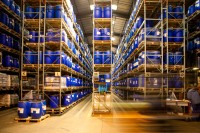Following the temporary withdrawal of the European Union dossier regarding a potential restriction of bisphenol A and other bisphenols of similarconcern (BoSC) by the uropean Chemicals Agency (ECHA), ILM spoke with Chris Tysoe, Head of Wet End ProductManagement for TFL, to discuss how the chemical sector is reacting to the bisphenol issue and potential regulations.
- ILM: Does this mean that the issue is not as urgent or less important than before?
CT: Absolutely not. While this initially seems like good news, it has unfortunately lured some into a very dangerous false sense of security. The reality is that this draft is only delayed, not cancelled. Furthermore, some famous brands have either already implemented, or are currently implementing, the addition of bisphenols to their own restricted substances lists (RSLs). In addition, in the U.S., bisphenol S (BPS) has been listed as a "reproductive toxicant" under "California Proposition 65" (Prop 65). The warning requirement for significant exposure to BPS of leather consumer articles will take effect in December 2024. It is, however, unclear how "significant exposure" will be defined in the U.S. The Prop 65 listing requires that all consumers buying an article made of leather, whether it be a shoe, handbag, car seat or sofa are informed.
- ILM: How do you think this will progress and what are you doing to support tanners?
CT: We do not speculate. TFL is in close contact with the U.S. authorities and will keep tanners fully informed of all developments in this field as soon as they become available. Inthe meantime, we are helping our customers to make leather below 10ppm bisphenol content to ensure they are way ahead of any current or expected legislation.
- ILM: Do we really need still syntans in modern leather production?
CT: The term "syntan" is loosely used in our industry, which seems to cover just about anything added in the retanning that is "synthesised" or "synthetic", Therefore, it is very important to distinguish between "auxiliaries" and genuine replacement "syntans". Just as the name suggests, genuine replacement syntans were originally developed to replace or substitute vegetable tannins but with clear advantages over them. Genuine replacement syntans are, today, still an essential part of wet end processing, with their "tanning power" completing the tannage, turning the intermediates of wet-blue and wet-white into genuine leather. They provide the key properties of tightness, fullness and softness together with lightfastness and heat resistance. Replacement syntans are simply indispensable.
- ILM: Cannot syntans be simply substituted by other retanning chemicals?
CT: No, the genuine "tanning power" of syntans is not possessed by the other conventional retanning agents such as resins, polymers and fillers etc. Although these other retanning chemicals play an important role modifying the filling properties, they do not tan, so cannot substitute genuine replacement syntans.
- ILM: What is the company doing to tackle bisphenol restrictions?
CT: Firstly, we now have a range of replacement syntans with ultra-low to zero bisphenol content. The resulting leather, following out recommendations will be below 10 ppm bisphenol content, which is non-detectable. Secondly, we ensure that all other supporting leather-making chemicals in our wet end range are completely free of bisphenols. It is only the replacement syntans that are affected by this bisphenol issue. Finally, we have developed a tool that calculates the bisphenol content in leather. This helps customers to select suitable products in the amount required to make the desired leathers and compliant with bisphenol restrictions. Of course, from time-to-time, customers may also send cuttings to either TFL or a third party to confirm the predicted results.
- ILM: Why has TFL launched the "ultra-low to zero" bisphenol syntan range in liquid form?
CT: Liquid products offer an environmental advantage as well as health and automation benefits. Should certain markets continue requiring powdered replacement syntans, IL Will make dried, bisphenol optimised products available as well.
International Leather Maker May/June 2024





 Main Reaction - The TFL Blog Stories, incidents, tips and facts around the topics leather, chemistry, fashion, sustainability and ecology. Our editorial staff consisting of experienced tanners, scientists, market experts, fashion and communication specialists has sharped their pencils and will supply you with fresh and inspiring content on a regular basis.
Main Reaction - The TFL Blog Stories, incidents, tips and facts around the topics leather, chemistry, fashion, sustainability and ecology. Our editorial staff consisting of experienced tanners, scientists, market experts, fashion and communication specialists has sharped their pencils and will supply you with fresh and inspiring content on a regular basis.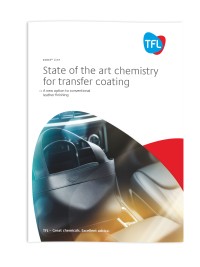
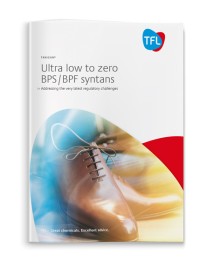
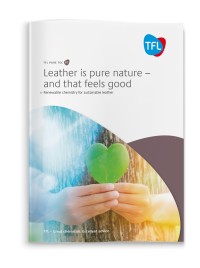
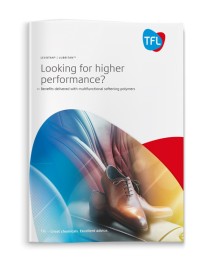 LEVOTAN® / LUBRITAN™ - Looking for higher performance? Tanners around the world are facing increasing challenges from their customers, for example, demands for higher performance such as fastness to light and heat resistance, but also lighter weight leather and more recently odour / emissions avoidance.
LEVOTAN® / LUBRITAN™ - Looking for higher performance? Tanners around the world are facing increasing challenges from their customers, for example, demands for higher performance such as fastness to light and heat resistance, but also lighter weight leather and more recently odour / emissions avoidance.






